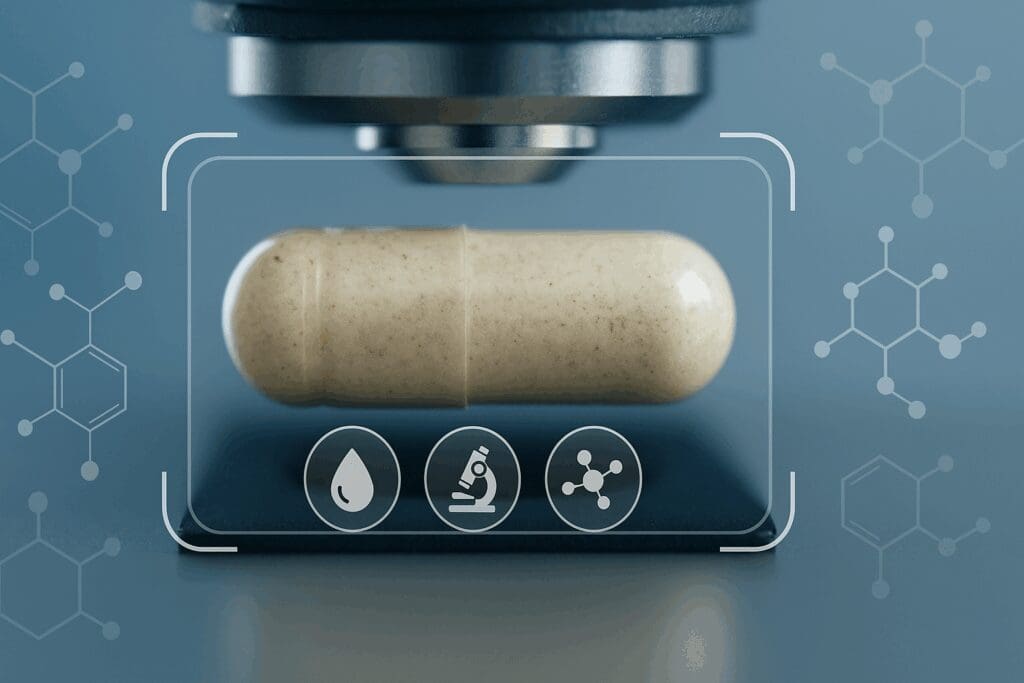In today’s fast-paced, cognitively demanding world, individuals are increasingly seeking ways to enhance memory, sharpen focus, and maintain long-term brain health. One of the most common and promising approaches involves the use of a memory support supplement. These formulations often claim to offer measurable cognitive improvements, including better concentration, mental clarity, and long-term memory retention. However, with countless products on the market, many of which make sweeping claims with little evidence, it becomes vital to understand what truly makes a memory support supplement effective. Backed by scientific insight and a foundation in nutritional neuroscience, this comprehensive guide offers a detailed exploration into choosing the right supplement for your cognitive needs.
You may also like: 12 Foods You Should Eat Every Day for Powerful Nutritional Benefits

Understanding Brain Function and Cognitive Decline
The human brain is an intricate organ, consisting of approximately 86 billion neurons that communicate through complex networks of synapses. Memory, focus, and learning are functions that rely on the health and connectivity of these neural networks. Over time, factors such as aging, stress, sleep deprivation, poor diet, and environmental toxins can compromise brain health, leading to cognitive decline.
This decline often manifests in the form of forgetfulness, reduced mental agility, difficulty concentrating, and slowed information processing. Although these symptoms are frequently associated with aging, younger adults are increasingly experiencing similar issues due to lifestyle-related stressors and digital overstimulation. Consequently, addressing cognitive wellness has become a universal concern, not just an age-related one. The emphasis has shifted from merely treating memory loss to proactively maintaining and enhancing brain function.
In recent decades, neuroscience research has made tremendous strides in identifying key nutrients and compounds that support memory, protect neurons, and improve synaptic plasticity. These discoveries have catalyzed the formulation of evidence-based memory enhancing supplements designed to target different aspects of cognitive health. By understanding how the brain functions and how it can falter, consumers are better positioned to evaluate and choose supplements that align with their individual needs.

What Defines a Scientifically-Backed Memory Support Supplement?
A memory support supplement backed by science distinguishes itself through several critical characteristics. First and foremost, it must include ingredients that have been validated through peer-reviewed clinical research. These ingredients should demonstrate measurable improvements in memory, attention span, cognitive flexibility, or neuroprotection.
Equally important is the dosage and bioavailability of the compounds. An ingredient may be clinically effective in a study, but if it is present in suboptimal quantities or poorly absorbed by the body in a commercial product, its effectiveness is significantly compromised. Therefore, quality supplements specify both the amount and the form of each ingredient, often using patented or standardized extracts to ensure efficacy.
Furthermore, a credible memory supplement is typically manufactured by reputable companies that follow Good Manufacturing Practices (GMP) and provide transparent labeling. Many also offer third-party lab testing to validate purity and potency. This scientific rigor differentiates genuine formulations from those relying on marketing gimmicks and anecdotal testimonials.
Additionally, synergy among ingredients plays a vital role. Effective formulations are thoughtfully designed to include compounds that complement each other. For example, combining omega-3 fatty acids with phosphatidylserine or B vitamins can enhance overall neurocognitive benefits. By evaluating these criteria, one can identify supplements that go beyond empty promises and offer real, science-backed support for memory and brain health.

Top Ingredients Found in the Best Memory Enhancing Supplements
Several nutrients and herbal extracts have emerged as top contenders in the formulation of memory enhancing supplements. These compounds are often included in products promoted as the best brain supplements for adults, as they offer multi-faceted benefits across memory, focus, and long-term brain resilience.
One of the most well-researched ingredients is Bacopa monnieri, an ancient Ayurvedic herb known for its neuroprotective and memory-enhancing properties. Clinical studies have shown that Bacopa improves the speed of information processing and verbal learning in healthy adults, especially when taken over several weeks. Its antioxidant effects also contribute to reducing oxidative stress in the brain.
Another foundational compound is Ginkgo biloba, which has been extensively studied for its effects on cerebral blood flow and cognitive performance. By improving circulation to the brain, Ginkgo can help support mental clarity and reduce cognitive fatigue. While not a magic bullet, its long history of use and substantial body of research make it a staple in many brain boosting supplements.
Phosphatidylserine, a phospholipid found in high concentrations in brain cell membranes, plays a critical role in maintaining neuronal structure and function. Supplementation has been linked to improvements in short-term memory, concentration, and mood regulation, particularly in older adults. Because the body produces less phosphatidylserine with age, supplementation can help fill the gap.
Omega-3 fatty acids, especially docosahexaenoic acid (DHA), are essential for brain health. DHA is a major structural component of brain tissue and has anti-inflammatory properties that help protect neurons. Studies suggest that higher DHA levels correlate with better memory performance and reduced risk of cognitive decline.
Lastly, no discussion of memory health supplements is complete without mentioning B vitamins. Vitamins B6, B9 (folate), and B12 are instrumental in reducing homocysteine levels, a biomarker associated with cognitive decline and Alzheimer’s disease. These vitamins also support neurotransmitter synthesis and energy metabolism within brain cells. When looking for the best vitamin for memory and cognitive clarity, B complex vitamins are often at the top of the list.

Evaluating the Effectiveness of Brain Boosting Supplements
Consumers frequently ask: do brain supplements work? The answer is nuanced. Effectiveness depends not only on the supplement’s formulation but also on the individual’s baseline cognitive status, health conditions, and lifestyle factors. Supplements are not meant to replace healthy habits but to complement them.
Clinical studies often use placebo-controlled trials to determine the efficacy of specific compounds. In such studies, participants are randomly assigned to take either the active supplement or a placebo over several weeks or months. Measurable improvements in memory, reaction time, and cognitive flexibility are assessed using standardized neuropsychological tests. These results provide credible evidence for the supplement’s potential.
That said, not all individuals will experience the same benefits. For example, someone with a nutrient deficiency may see more dramatic improvements compared to someone already maintaining optimal nutrient levels. Additionally, brain supplements are not a quick fix; most require consistent use over time to yield noticeable effects.
A common mistake among consumers is to try multiple supplements simultaneously, which makes it difficult to identify what is actually working. It’s advisable to introduce one supplement at a time and monitor changes in cognitive performance, energy levels, and mood over a 4- to 12-week period. Keeping a cognitive journal can help track subtle shifts and determine whether the product is delivering on its promise.
For the best results, brain boosting supplements should be combined with a nutrient-rich diet, regular physical activity, quality sleep, and mental stimulation. These lifestyle factors enhance neuroplasticity and create a conducive environment for supplements to exert their full potential.
How to Choose the Best Memory Support Supplement for Your Needs
Choosing the best memory support supplement can feel overwhelming given the vast array of options available. However, by applying a set of objective criteria, the selection process becomes more manageable and effective.
Start by identifying your primary cognitive goals. Are you seeking to improve short-term memory for academic or work performance? Do you want to enhance focus and reduce mental fatigue? Or are you more concerned with long-term cognitive protection? Clarifying these goals will help narrow down your choices to products targeting specific functions, such as the best supplement for memory and focus or the best vitamins for brain function.
Next, examine the ingredient list with a critical eye. Look for well-studied compounds such as Bacopa monnieri, Ginkgo biloba, DHA, phosphatidylserine, and B vitamins. Avoid proprietary blends that do not disclose ingredient quantities, as this makes it impossible to verify efficacy. Reputable brands often provide transparent labeling and links to supporting clinical research.
Consider the supplement’s delivery method and dosage form. Some ingredients, such as curcumin or CoQ10, have low bioavailability unless paired with absorption-enhancing agents like black pepper extract or liposomal delivery systems. Tablets, capsules, softgels, and powders each have their pros and cons in terms of absorption and convenience.
It’s also important to evaluate the company behind the product. Look for manufacturers that follow GMP-certified processes, conduct third-party testing, and provide excellent customer support. Check for certifications such as NSF or USP, which indicate rigorous quality control. Customer reviews, while not definitive, can offer additional insights into product effectiveness and tolerance.
Finally, consult a healthcare provider, especially if you are taking prescription medications or have pre-existing conditions. Some brain vitamins for studying and supplements for memory and brain function can interact with medications or exacerbate certain health issues. Personalized advice from a physician or nutritionist adds another layer of safety and effectiveness to your supplement regimen.

The Role of Diet and Lifestyle in Memory and Brain Health
While supplements play a supportive role in cognitive health, they are not substitutes for a brain-friendly lifestyle. In fact, the best supplement for brain function will be far more effective when combined with dietary and lifestyle strategies that foster neural resilience.
A nutrient-dense diet rich in antioxidants, polyphenols, healthy fats, and complex carbohydrates provides the raw materials needed for optimal brain function. Foods such as fatty fish, leafy greens, berries, turmeric, nuts, and whole grains offer a broad spectrum of vitamins and phytochemicals that nourish the brain. These foods also help regulate blood sugar, reduce inflammation, and support mitochondrial health.
Physical exercise is another powerful brain enhancer. Aerobic activities such as walking, swimming, or cycling increase cerebral blood flow, stimulate the release of brain-derived neurotrophic factor (BDNF), and enhance mood through endorphin production. Regular movement is closely associated with improved memory, better executive function, and reduced risk of neurodegenerative disease.
Sleep, often overlooked, is essential for cognitive consolidation and memory encoding. During deep sleep, the brain performs critical housekeeping tasks such as clearing metabolic waste through the glymphatic system. Inadequate sleep impairs attention, decision-making, and long-term memory storage. Thus, no memory health supplement can compensate for chronic sleep deprivation.
Cognitive engagement is equally vital. Activities such as learning new languages, playing musical instruments, solving puzzles, and reading complex texts stimulate neural networks and foster plasticity. These intellectual challenges help create new synaptic connections, reinforcing the effects of memory enhancing supplements.
Stress management is another cornerstone of brain health. Chronic stress elevates cortisol levels, which can damage the hippocampus, the brain’s memory center. Techniques such as meditation, deep breathing, and spending time in nature help modulate stress responses and preserve cognitive function. Together, these lifestyle pillars create a foundation upon which supplements can build and thrive.
Understanding the Science Behind Memory Enhancement
Memory is not a monolithic construct; it encompasses various domains such as short-term, long-term, episodic, semantic, and procedural memory. Each of these types involves different brain regions and neurotransmitter systems. For instance, the hippocampus is critical for forming new long-term memories, while the prefrontal cortex is essential for working memory and executive function.
Neurotransmitters such as acetylcholine, dopamine, serotonin, and glutamate play key roles in modulating memory processes. Acetylcholine, in particular, is heavily involved in attention and memory encoding. Many memory support supplements target these neurotransmitters through precursor molecules, enzyme inhibitors, or receptor modulators.
Neurogenesis, the formation of new neurons, also contributes to memory formation, particularly in the hippocampus. This process is influenced by factors such as exercise, enriched environments, and specific dietary compounds like flavonoids and omega-3 fatty acids. Memory health supplements that support neurogenesis may offer long-term benefits in preventing age-related cognitive decline.
Brain-derived neurotrophic factor (BDNF) is a protein that promotes the survival and growth of neurons. It plays a vital role in synaptic plasticity, which underlies learning and memory. Enhancing BDNF levels through lifestyle interventions and select supplements is a promising strategy for boosting cognitive performance.
Oxidative stress and inflammation are two major contributors to neuronal damage and cognitive impairment. Antioxidant-rich supplements help neutralize free radicals, while anti-inflammatory compounds like curcumin and omega-3s reduce neural inflammation. A multi-pronged approach targeting these underlying mechanisms can enhance the effectiveness of memory support supplements.

Choosing the Best Supplement for Memory and Focus in Specific Life Stages
Cognitive needs vary across the lifespan, and choosing the best supplement for memory and focus should take these differences into account. For students and young professionals, the emphasis is often on mental clarity, sustained attention, and cognitive endurance. Brain vitamins for studying may include ingredients like L-theanine, caffeine, and Rhodiola rosea, which enhance alertness without overstimulation.
For middle-aged adults balancing careers and family responsibilities, memory support supplements that improve multitasking, stress resilience, and executive function are particularly valuable. Adaptogens such as ashwagandha and neuroprotective agents like phosphatidylserine can provide a mental edge while mitigating burnout.
In older adults, the focus shifts to preserving long-term memory and reducing the risk of dementia. Here, the best supplements for brain health include compounds that address mitochondrial function, oxidative stress, and neurotransmitter balance. Ingredients such as resveratrol, acetyl-L-carnitine, and alpha-lipoic acid show promise in promoting cognitive longevity.
It’s also important to consider gender-specific needs. For example, hormonal fluctuations in women during menopause can impact memory and mood. Supplements containing phytoestrogens or hormone-supportive nutrients may be beneficial. Men may benefit from formulations that support vascular health and testosterone levels, both of which influence cognition.
Ultimately, tailoring your supplement choice to your age, lifestyle, and specific cognitive goals enhances efficacy and ensures you are investing in a product aligned with your needs.
Frequently Asked Questions (FAQ) on Memory Supplements and Brain Health
Can a memory support supplement enhance creativity and problem-solving skills in professionals?
While most people associate memory support supplements with improving recall and focus, there’s emerging evidence suggesting that certain formulations may indirectly support higher-order cognitive functions such as creativity and problem-solving. Ingredients like phosphatidylserine and citicoline, commonly found in brain boosting supplements, are believed to improve communication between brain cells, which can contribute to more fluid thinking and better ideation. For professionals in high-demand fields like tech, finance, or medicine, this could translate into more agile problem-solving and innovative thinking under pressure. Additionally, adaptogens such as Rhodiola rosea may help buffer stress, which often hinders creative insight. When combined with strategic cognitive training, the right memory support supplement may support not only memory but also flexible thinking and real-time decision-making.
What makes the best brain supplements for adults different from those targeted at students or seniors?
The best brain supplements for adults typically focus on sustaining energy, sharpening mental clarity, and reducing stress-related cognitive fatigue. In contrast, brain vitamins for studying—targeted at students—often include ingredients like caffeine, L-theanine, and tyrosine, which promote wakefulness and fast-paced mental processing. For older adults, the best supplements for brain health prioritize neuroprotection, cellular repair, and anti-inflammatory effects through compounds like acetyl-L-carnitine, DHA, and resveratrol. Each life stage has unique cognitive demands, so selecting the best supplement for memory and focus should take into account age, lifestyle, and cognitive goals. Formulations tailored to a user’s phase of life are far more effective than one-size-fits-all options.
How do memory enhancing supplements impact emotional regulation and mood balance?
Beyond their effects on memory and attention, many memory enhancing supplements also influence mood and emotional balance by interacting with neurotransmitter systems. For example, B vitamins, often cited as the best vitamins for good memory, are crucial for synthesizing serotonin and dopamine—key players in mood regulation. Adaptogens such as ashwagandha and ginseng, frequently included in top rated memory supplements, have shown promise in reducing cortisol levels, which in turn supports emotional resilience. Magnesium and omega-3s, found in several memory health supplements, help buffer the effects of chronic stress and may reduce symptoms of mild anxiety or depression. This mood-stabilizing aspect is an often-overlooked benefit that contributes to the overall effectiveness of a memory support supplement. For those juggling high-pressure environments, these ingredients can be transformative.
Can vitamins help brain function improve after burnout or mental exhaustion?
Yes, certain vitamins can help restore cognitive function following periods of burnout or mental fatigue. Vitamins that are good for brain function—such as B12, folate, and vitamin D—play a role in rebuilding depleted neurotransmitter levels and enhancing energy metabolism in the brain. Burnout often results in impaired executive function and memory lapses, and supplements to aid memory can act as part of a restorative strategy. The best vitamin for memory recovery may also depend on the underlying deficiencies caused by prolonged stress. For example, chronic cortisol elevation can deplete magnesium and disrupt glucose metabolism, both of which impair mental clarity. In such cases, good brain supplements work best when paired with sleep, nutritional support, and mindfulness practices.
How do I evaluate whether a memory pill is working for me personally?
Tracking the effectiveness of a memory pill requires both subjective observation and, ideally, objective tools. Begin by setting a baseline—note your current ability to remember names, focus during tasks, or recall instructions. Use digital tools like brain training apps or simple cognitive tasks weekly to measure progress. Supplements to improve memory often show results gradually, typically over 4 to 12 weeks. Pay attention to indirect improvements as well, such as increased productivity, smoother multitasking, or fewer moments of mental fog. For a clearer picture, you might also log dietary changes, sleep patterns, and stress levels, since these can confound or amplify the results of memory health supplements.
The Role of a Memory Support Supplement in Neuroplasticity and Long-Term Brain Adaptation
A lesser-discussed but critical benefit of using a memory support supplement is its potential impact on neuroplasticity—the brain’s ability to adapt and reorganize itself. Some of the best supplements for brain function include compounds like Lion’s Mane mushroom, which has been shown in animal models to stimulate nerve growth factor (NGF). This can potentially enhance synaptic growth and repair. In humans, neuroplasticity underpins learning new skills, recovering from injuries, and forming habits, making it central to long-term brain adaptation. Supplements to help memory, when paired with active learning and problem-solving tasks, may accelerate this neural rewiring. Over time, this creates a more resilient and responsive brain—especially vital for aging populations or those in cognitively demanding professions.
Are there supplements to help memory that also protect against age-related cognitive decline?
Yes, many of the best supplements for memory and focus are designed with long-term cognitive resilience in mind. Ingredients such as curcumin, alpha-lipoic acid, and resveratrol offer powerful antioxidant properties that counteract the oxidative stress associated with aging. DHA and EPA, omega-3 fatty acids found in fish oil, are often included in supplements good for brain health due to their role in maintaining membrane fluidity and preventing amyloid plaque accumulation. These compounds don’t just support immediate recall; they form part of a long-term strategy to prevent neurodegeneration. Regular supplementation, when combined with diet and exercise, may help reduce the risk of conditions like Alzheimer’s and vascular dementia. The goal is not merely to enhance function now but to preserve it in the decades to come.
What vitamin helps with memory in individuals dealing with chronic illness or medication side effects?
For individuals managing chronic conditions or undergoing treatments that affect cognition, such as chemotherapy or epilepsy medications, certain vitamins offer targeted neuroprotection. Vitamin B1 (thiamine), for instance, is vital for glucose metabolism in the brain and may counteract foggy thinking associated with metabolic disorders. Vitamin E, known for its antioxidant properties, has been studied for its potential to delay cognitive decline in people with mild Alzheimer’s. These are not just the best vitamins for brain function—they’re also therapeutic in managing specific neurological side effects. Supplements for memory and brain function that include these vitamins may alleviate cognitive symptoms without interfering with the primary treatment. However, it is critical to consult healthcare providers before introducing new supplements in such scenarios.
How are brain vitamins for studying evolving with advances in neuroscience and biotechnology?
The field of cognitive enhancement is evolving rapidly, and brain vitamins for studying are now leveraging cutting-edge biotechnology to improve their efficacy. Liposomal encapsulation and nanotechnology delivery systems are enhancing the bioavailability of traditionally hard-to-absorb nutrients like curcumin and CoQ10. These innovations allow nutrients to cross the blood-brain barrier more efficiently, making even small doses more effective. Formulas are also becoming more personalized, with DNA-based testing guiding the choice of the best supplement for the brain based on genetic predispositions. Additionally, AI and machine learning are being used to design nootropic stacks tailored to specific cognitive profiles. The future of brain boosting supplements lies in this intersection between personalized medicine and neurotech-driven delivery.
Finding the Best Memory Support Supplement for Unique Cognitive Needs
Not all memory support supplements are created equal, and choosing the right one requires attention to your specific cognitive goals. For example, someone who struggles with focus under stress may benefit more from supplements containing adaptogens and amino acids, while another individual facing age-related forgetfulness might prioritize choline donors and mitochondrial enhancers. The best brain supplements for adults often include a blend of immediate boosters and long-term neuroprotective agents. To find the best memory supplement, it helps to read clinical trial summaries, examine third-party test results, and consult with functional medicine practitioners. Personalized selection—rather than relying on popularity or price—ensures that the chosen formula aligns with your unique neurological needs and supports sustainable mental performance.
Closing Reflections on Brain Health and Supplementation
The pursuit of optimal cognitive performance is more than a trend—it is a proactive strategy for navigating the complexities of modern life. With scientific advances shedding light on the intricate mechanisms underlying memory, focus, and brain resilience, we are now better equipped than ever to support our cognitive health through both lifestyle and supplementation.
A memory support supplement backed by science is not a shortcut but a valuable tool within a holistic framework that includes nutrition, physical activity, mental engagement, and emotional well-being. The best supplements for memory and brain function are those that align with evidence-based practices, provide clinically validated ingredients, and are personalized to individual cognitive needs and life stages.
As we continue to learn more about the brain’s remarkable adaptability, the integration of memory enhancing supplements into a brain-conscious lifestyle offers a compelling pathway toward long-term mental vitality. Choosing the right supplement is an investment not just in memory, but in a life of sustained focus, clarity, and cognitive empowerment.
Further Reading:
Over the Counter Supplements for Memory: A Review of Available Evidence
I’ve been studying the brain for 15 years—I recommend these 5 supplements to just about everyone
The 9 Best Supplements to Improve Brain Health: What the Science Says



